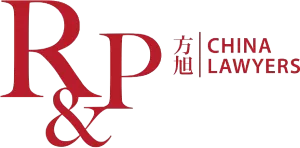- with readers working within the Metals & Mining industries
- within Criminal Law, Technology and Employment and HR topic(s)
On 25 December 2020, the Supreme People's Procuratorate of China held a forum for reviewing the Pilot Program on Enhancing Enterprise Compliance. Regarding the district procuratorates selected for the pilot program enforcing compliance as rectification on suspected companies, the Chief Procurator of the Supreme Procuratorate remarked that to ensure the fulfillment of enterprises' promises on compliance, it is important to involve and facilitate the third-party supervising mechanism, including lawyers, auditors, accountants, etc.1
China is on its way to build up a "system of compliance instead of prosecution". Earlier in 2020, the Supreme Procuratorate designated 6 district procuratorates (including Shanghai, Shenzhen, Jiangsu Province and Shandong Province) to implement trial practices imposing compliance requirements as rectification on suspected private companies (vis-à-vis state-owned companies), refraining from approving arrests, charges or enforce substantial punishments on cooperative suspects meeting the set requirements.2
Actually, the first case marking the aforementioned practice dates back to 2015. A company in Daishan County, in sore need of cash, purchased a substantial amount of counterfeited special VAT (value added tax) invoices to prove the value of a pledge in order to renew a loan amounting to RMB 4 million from the bank. Faced with the crimes of fabricating special VAT invoices and loan fraud, both the company and the management personnel were charged. Taken into account the operational difficulties following the prosecution which may cause large scale unemployment, the Daishan County Procuratorate imposed requirements on compliance as rectification instead of directly prosecuting the suspects. Because the company submitted a Promise on Self-Examination and Rectification and met the requirements accomplishing the rectification plan, the procuratorate eventually took the decision not to prosecute either the company nor the personnel.3
Entering into 2020, to refine the development of the aforementioned system, the central authority emphasized the third-party supervising mechanism, invoking the practice of a compliance inspector, or, independent supervisor. Notably in Shenzhen, the Bao'an District Justice Bureau published Provisions on the Appointment and Management of Criminal Compliance Independent Supervisor of Enterprises (Trial), to elaborate independent supervisor's sources, selection criteria, functions and duties etc. The new practice is worth the attention of private companies especially because the suspected company would be entitled to choose a law firm assuming the role of compliance inspector, supervising and assisting in accomplishing the rectification program.
How can a compliance inspector support a suspected company achieve compliance and become exempt from prosecution?
1) Investigation and communication. When a prosecutor considers a case that may meet the conditions to apply compliance instead of prosecution, they tend to initiate an investigation of the suspected company's compliance system, criminal acts, harmful consequences, social concerns etc. The compliance inspector can be entrusted to conduct such investigation and clarify the subjects for designing the rectification through compliance program.
2) Rectification program design. Once the suspected company makes the promise to improve its compliance system, accepting compliance as rectification, the compliance inspector can help carry out the rectification through compliance program.
3) Supervising and improving. The procuratorate sets a limit period for observing the suspected company to accomplish the rectification plan. During the period, the compliance inspector, on the one hand, supervises and reports the progress of rectification to the procuratorate; and on the other hand, helps improve the implementation of the rectification program;
4) Evaluation and final decision. Upon expiry of the observation period, the procuratorate evaluates the outcome of the suspected company's rectification. The compliance inspector may be invited for co-evaluation. Depending on the result of the evaluation, the procuratorate then takes the final decision whether to exempt the company from prosecution.
In conclusion, the practice of the procuratorate in China has placed an emphasis on invoking the third-party supervising mechanism to refine the system of compliance instead of prosecution, which demonstrates a practical approach to criminal policy for private companies. If taking the chance to choose a qualified compliance inspector, cooperating well in the rectification process, suspected companies are likely to find salvation lies within.
Footnotes
1Zhang Jun: Innovation in Execution of Procuratorial Duty, Facilitating Establishment of Enterprise Compliance System with Chinese Characteristics, The Supreme People's Procuratorate of the People's Republic of China, 27 December 2020, Home page > Headlines https://www.spp.gov.cn/tt/202012/t20201227_503711.shtml accessed on 29 December 2020.
2 Ibid.
3 China Practice on Criminal Compliance – An Overview on Criminal Compliance Independent Supervisor and the System of Non-Prosecution in Compliance, Mr Lianjun Du & Mr. Zhilin Chu, 18 October 2020, http://www.acla.org.cn/article/page/detailById/31128 accessed on 29 December 2020.
The content of this article is intended to provide a general guide to the subject matter. Specialist advice should be sought about your specific circumstances.
[View Source]



